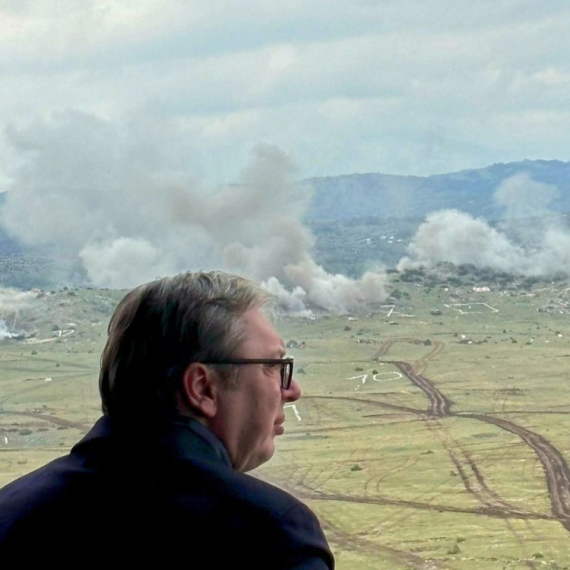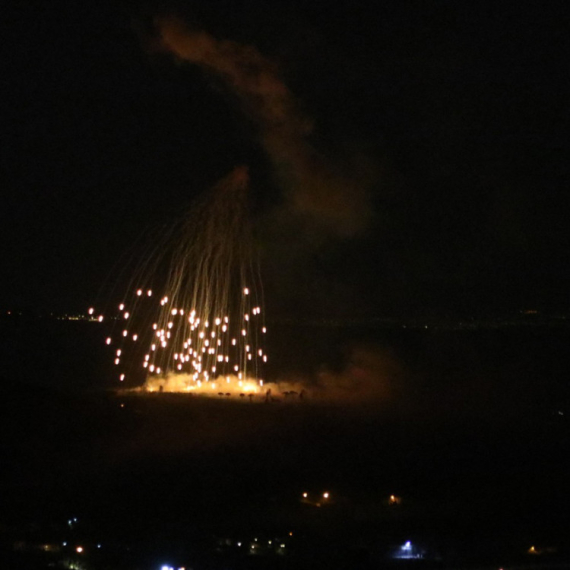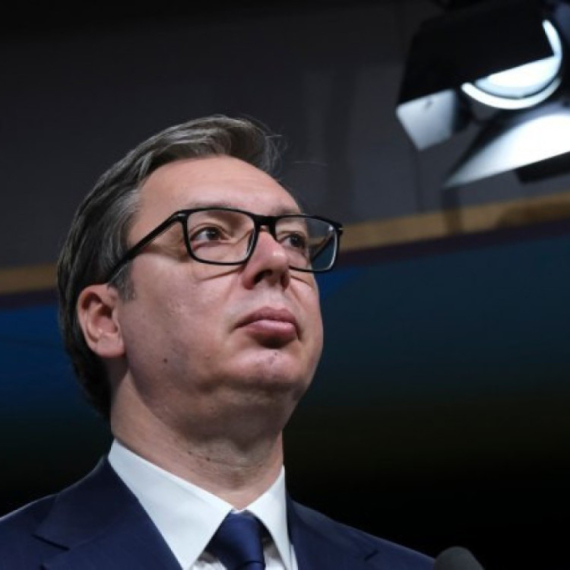ICG take on Preševo Valley in latest report
The International Crisis Group (ICG) has issued a new report focusing on Serbia's volatile south.
Tuesday, 16.10.2007.
16:41

The International Crisis Group (ICG) has issued a new report focusing on Serbia's volatile south. The report points out to the Presevo Valley, home of the largest ethnic Albanian community in Serbia outside of Kosovo, as "a rare conflict resolution success story" in the former Yugoslavia. ICG take on Presevo Valley in latest report The ICG sees the current situation in the region as "normal, with no major incidents in three years," but adds that massive unemployment, and "the shadow of Kosovo's future status" burden the political landscape. The report claims that peace and security in the Valley will be impacted in a "profound" way with the decision on Kosovo's status, citing a worst case scenario of "ethnic cleansing," that "would be accompanied by significant, cross-boundary, two-way refugee flows." "All parties – local Albanian politicians, the Serbian government and the international community – need to work with greater urgency on developing the region’s economy and ensuring that developments in Kosovo do not disrupt its peaceful progress," the ICG says. A release from the organization reminds that ethnic Albanian violence in 2001, which saw dozens of police officers and civilians killed and wounded, and which is referred to as "an armed Albanian insurgency" ended in a deal, known as the Konculj Agreement, brokered by the international community, including NATO, the U.S. and the Organization for Security and Cooperation in Europe (OSCE), working together with Serbia’s authorities. And while Valley Albanians have in 2007 for the first time taken part in an election and are represented in parliament, the report says that "grievances about on both sides." "Most local Albanians feel peace has not delivered an end to tensions with Serb security forces or the promised prosperity." "Serbs feel the Albanians are a disloyal, irredentist minority, which continues to flout Serbian sovereignty and endanger what has traditionally been an economically important north-south trade route." "In some instances Albanians, when exercising their newly found majority power against Serbs, fuel charges of reverse discrimination," the document says. "All Presevo Valley Albanian politicians want to join Kosovo and have adopted a platform demanding that the valley’s three municipalities be awarded to it in the event Kosovo is partitioned," the reports adds. "But those same politicians mostly know this is not realistic: Belgrade and its security forces will not permit it," the ICG notes. It then goes on to allege that, in case anti-Serb violence breaks out in Kosovo, the Serbian authorities may be "hoping of using the cover of violence next door to ethnically cleanse the Valley." "Some in Serbia wish to see population transfers between Kosovo’s Serbian enclaves and southern Serbia," it further claims, without elaborating. "For now at least, southern Serbia’s Albanian politicians and population eschew any violent attempts to achieve union with an independent Kosovo, but rogue elements operating from Kosovo may wish to stir the pot," the report continues. The ICG called on the international community "to be engaged, pressing both Belgrade and Albanian politicians to fulfill all aspects of the Konculj Agreement, while focusing more attention on the local economy."
ICG take on Preševo Valley in latest report
The ICG sees the current situation in the region as "normal, with no major incidents in three years," but adds that massive unemployment, and "the shadow of Kosovo's future status" burden the political landscape.The report claims that peace and security in the Valley will be impacted in a "profound" way with the decision on Kosovo's status, citing a worst case scenario of "ethnic cleansing," that "would be accompanied by significant, cross-boundary, two-way refugee flows."
"All parties – local Albanian politicians, the Serbian government and the international community – need to work with greater urgency on developing the region’s economy and ensuring that developments in Kosovo do not disrupt its peaceful progress," the ICG says.
A release from the organization reminds that ethnic Albanian violence in 2001, which saw dozens of police officers and civilians killed and wounded, and which is referred to as "an armed Albanian insurgency" ended in a deal, known as the Končulj Agreement, brokered by the international community, including NATO, the U.S. and the Organization for Security and Cooperation in Europe (OSCE), working together with Serbia’s authorities.
And while Valley Albanians have in 2007 for the first time taken part in an election and are represented in parliament, the report says that "grievances about on both sides."
"Most local Albanians feel peace has not delivered an end to tensions with Serb security forces or the promised prosperity."
"Serbs feel the Albanians are a disloyal, irredentist minority, which continues to flout Serbian sovereignty and endanger what has traditionally been an economically important north-south trade route."
"In some instances Albanians, when exercising their newly found majority power against Serbs, fuel charges of reverse discrimination," the document says.
"All Preševo Valley Albanian politicians want to join Kosovo and have adopted a platform demanding that the valley’s three municipalities be awarded to it in the event Kosovo is partitioned," the reports adds.
"But those same politicians mostly know this is not realistic: Belgrade and its security forces will not permit it," the ICG notes.
It then goes on to allege that, in case anti-Serb violence breaks out in Kosovo, the Serbian authorities may be "hoping of using the cover of violence next door to ethnically cleanse the Valley."
"Some in Serbia wish to see population transfers between Kosovo’s Serbian enclaves and southern Serbia," it further claims, without elaborating.
"For now at least, southern Serbia’s Albanian politicians and population eschew any violent attempts to achieve union with an independent Kosovo, but rogue elements operating from Kosovo may wish to stir the pot," the report continues.
The ICG called on the international community "to be engaged, pressing both Belgrade and Albanian politicians to fulfill all aspects of the Končulj Agreement, while focusing more attention on the local economy."


























































Komentari 6
Pogledaj komentare